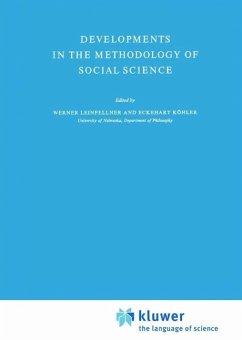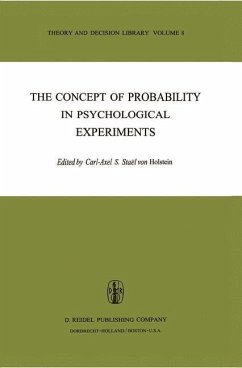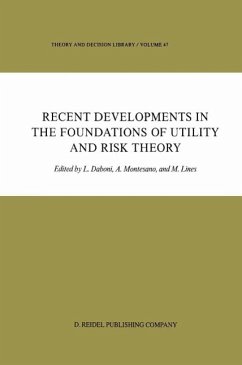
Decision Making and Change in Human Affairs (eBook, PDF)
Proceedings of the Fifth Research Conference on Subjective Probability, Utility, and Decision Making, Darmstadt, 1-4 September, 1975
Redaktion: Jungermann, H.; De Zeeuw, G.
Versandkostenfrei!
Sofort per Download lieferbar
160,95 €
inkl. MwSt.
Weitere Ausgaben:

PAYBACK Punkte
80 °P sammeln!
It is only just recently that people have the tools to judge how well they are doing when making decisions. These tools were conceptualized in the seventeenth century. Since then many people have worked to sharpen the concepts, and to explore how these can be applied further. The problems of decision-making and the theory developed correspondingly have drawn the interest of mathematicians, psychologists, statisticians, economists, philosophers, organizational experts, sociologists, not only for their general relevance, but also for a more intrinsic fascination. There are quite a few institutio...
It is only just recently that people have the tools to judge how well they are doing when making decisions. These tools were conceptualized in the seventeenth century. Since then many people have worked to sharpen the concepts, and to explore how these can be applied further. The problems of decision-making and the theory developed correspondingly have drawn the interest of mathematicians, psychologists, statisticians, economists, philosophers, organizational experts, sociologists, not only for their general relevance, but also for a more intrinsic fascination. There are quite a few institutionalized activities to disseminate results and stimulate research in decision-making. For about a decade now a European organizational structure, centered mainly around the psy chological interest in decision-making. There have been conferences in Hamburg, Amsterdam, Uxbridge, Rome and Darmstadt. Conference papers have been partly published+. The organization has thus stabilized, and its re latively long history makes it interesting to see what kind of developments occurred, within the area of interest.
Dieser Download kann aus rechtlichen Gründen nur mit Rechnungsadresse in A, B, BG, CY, CZ, D, DK, EW, E, FIN, F, GR, HR, H, IRL, I, LT, L, LR, M, NL, PL, P, R, S, SLO, SK ausgeliefert werden.












